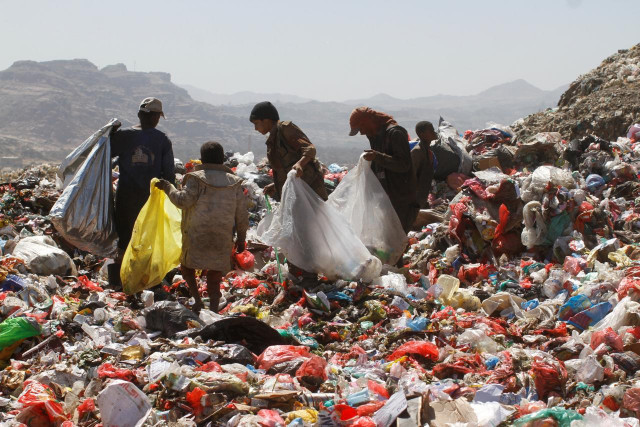Pakistan, a nation blessed with diverse cultures, traditions and cuisines, is facing an insidious enemy from within its own kitchens: food waste. While the country struggles with numerous challenges, from economic instability to political turmoil, the staggering amount of food that goes to waste every day remains a silent yet significant crisis that demands urgent attention.
In a country where millions go to bed hungry every night, the sight of food being discarded without a second thought is not just disheartening but downright criminal. According to recent estimates, Pakistan wastes approximately 36 million tons of food annually, an appalling figure that amounts to nearly 40 per cent of the total food produced in the country. This isn't just about the wastage of resources; it's a blatant disregard for human life and dignity.
One of the primary reasons behind this wasteful behaviour is the lack of awareness and education regarding the consequences of food wastage. Many Pakistanis are unaware of the environmental, social and economic impacts of their actions. They fail to realise that every morsel of food that ends up in the trash has a ripple effect, contributing to greenhouse gas emissions, exacerbating poverty, and straining already limited resources.
Moreover, there exists a prevalent culture of extravagance and ostentation, particularly among the elite, where food is treated as a status symbol rather than a precious commodity. Lavish feasts and extravagant events often result in mountains of leftover food, which are callously discarded without a second thought. It's high time we reassess our priorities and redefine what it means to truly value and respect food.
But it's not just the affluent who are guilty of this crime; food wastage permeates every level of society. From household kitchens to restaurants, hotels, and supermarkets, inefficiencies in storage, distribution, and consumption lead to an unconscionable amount of food being squandered every day. This isn't just a problem of scarcity; it's a problem of mismanagement and negligence.
The consequences of this rampant food wastage are manifold. Environmentally, it contributes to climate change through the release of methane gas from decomposing organic matter in landfills. Socially, it perpetuates hunger and poverty by depriving those in need of access to nutritious food. Economically, it represents a colossal waste of resources, including water, land, labour, and capital, which could be better utilised to address pressing developmental challenges.
So, what can be done to address this crisis? First and foremost, there needs to be a concerted effort to raise awareness about the issue of food wastage and its consequences. Education campaigns, targeted at both the general public and stakeholders across the food supply chain, can play a crucial role in changing attitudes and behaviours towards food.
Secondly, there is a need for better infrastructure and logistics to ensure more efficient food distribution and storage. Investments in cold storage facilities, transportation networks, and packaging technologies can help minimise losses along the supply chain and ensure that food reaches those who need it most.
Furthermore, efforts should be made to promote sustainable consumption patterns and practices. This includes initiatives to reduce portion sizes, encourage meal planning and preparation, and discourage overstocking and hoarding. Restaurants and food service establishments, in particular, have a responsibility to implement measures to minimise food wastage, such as offering smaller portions, donating surplus food to charities, and composting organic waste.
Finally, there needs to be greater accountability and regulation to ensure compliance with food safety and waste management standards. Government agencies, NGOs, and civil society organisations must work together to enforce existing regulations and introduce new policies to incentivise responsible behaviour and penalise egregious offenders.
In conclusion, Pakistan's food waste crisis is a complex and multifaceted problem that requires a comprehensive and coordinated response from all sectors of society. It's not enough to simply lament the situation; we must take decisive action to address the root causes and implement sustainable solutions. Every grain of rice, every scrap of bread, and every morsel of food that is needlessly wasted is a betrayal of our moral obligation to our fellow human beings and future generations. It's time to stop talking and start acting. The time for change is now.



COMMENTS (2)
Comments are moderated and generally will be posted if they are on-topic and not abusive.
For more information, please see our Comments FAQ